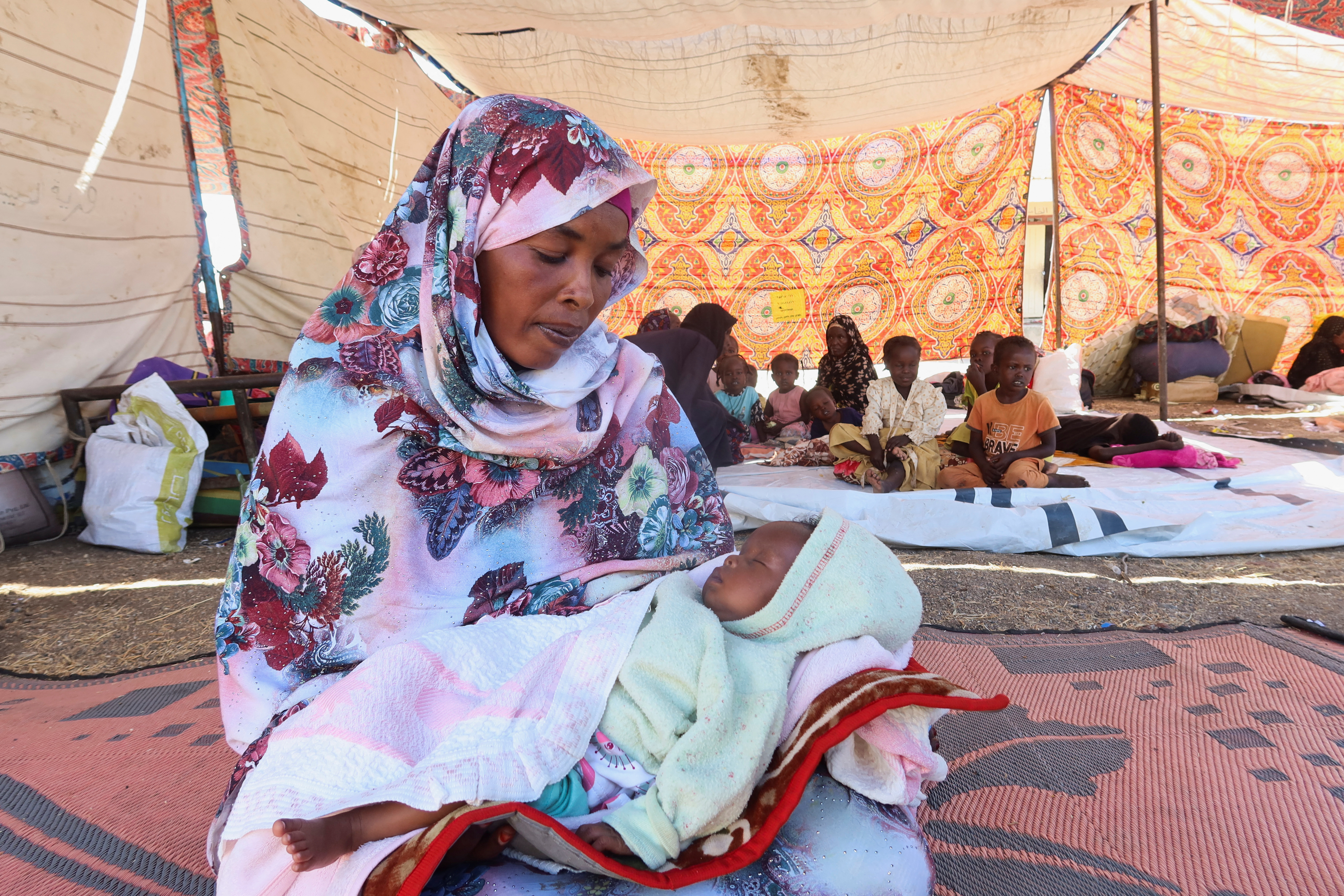Salwa Abdallah was recuperating from a caesarean section and tending to her one-month old baby when soldiers from the Rapid Support Forces barged into her home in Sudan’s eastern El Gezira state late last month.
They accused her of loyalty to the army and its allies, their rivals in an 18-month war. “They said ‘You killed us, so today we’ll kill you and rape your girls,'” she told Reuters, sheltering under a makeshift sheet in the town of New Halfa, where she arrived after walking for days on foot with her elderly mother and children.
She said the soldiers chased them out of their village with whips and later shot at them on motorcycles, which two other victims of the attack also mentioned.
Reuters spoke to 13 victims of a series of intense, violent raids in eastern Gezira over the past two weeks, which affected at least 65 villages and towns according to activists.
The UN says some 135,000 people have been displaced, largely to Kassala, Gedaref, and River Nile states, which are already packed with many of the more than 11 million internally displaced by the devastating war that broke out in April 2023.
“I am shocked and deeply appalled that human rights violations of the kind witnessed in Darfur last year … are being repeated in El Gezira State. These are atrocious crimes,” said the UN’s top official in Sudan, Clementine Nkweta-Salami, referring to attacks last year that prompted accusations of ethnic cleansing and crimes against humanity from the United States and others.
The war has unleashed hunger across the country, erased most signs of a functioning state in RSF-held areas, and prompted fears of fragmentation.
Both sides are accused of hindering much needed international assistance.
A spokesperson for the RSF did not immediately respond to Reuters’ requests for comment.
“These are simple people who should be living safely in their villages. They are not fighters and there is not a single army garrison in the area that could justify the RSF’s accusations that they are working with the army,” said army spokesman Brigadier General Nabil Abdallah, accusing the RSF of a campaign of resettlement.
REVENGE ATTACKS
Though El Gezira state has been subject to a violent looting campaign since the RSF took control in December, the defection of its chief in the state unleashed a series of revenge attacks.
The Wad Madani Resistance Committee, a pro-democracy group, named 169 people killed since the violence began on Oct. 20, though in a statement it said there were hundreds more.
The UN’s human rights office said last week that there were at least 25 cases of sexual violence, including an 11 year-old girl who died as a result. The office also said that the RSF had confiscated internet devices in at least 30 villages, and cited reports they had burnt fields of crops.
The worst incident was in al-Sireha, where the committee said 124 people were killed on Oct. 25.
Video verified by Reuters showed RSF soldiers lining up men, many of them elderly, and some in blood-splattered clothes, taunting them and forcing them to bleat.
Another video verified by Reuters showed dozens of bodies wrapped up in sheets for burial.
The RSF has denied ordering both attacks, and said the attacks in Gezira were the result of the army arming local communities.
The army has responded by emphasising popular resistance campaigns, though there has been little evidence of widescale arming of civilians in Gezira.
The Sudanese Human Rights Monitor warned the army against “leaving civilians … exposed to direct and disproportionate confrontations with the RSF,” which it criticised for not fulfilling promises to protect civilians.
Hashim Bashir, a man disabled after his leg was amputated prior to the war, said RSF soldiers threw him out of his home in al-Nayb village.
“They are very vicious… If you survive their gunshots, they hit you in your head. If you survive that, they beat you with a whip,” he said, showing scars on his functioning leg.
His niece, Faiza Mohammed, said the RSF soldiers allowed them to take nothing with them, even identifying documents.
“I hid under the bed, but they got me, beat me, and pulled my earring straight off my ear,” she said.







Click here to change your cookie preferences